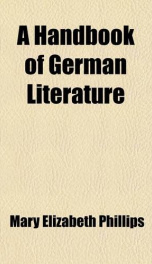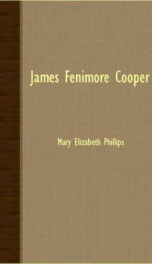a handbook of german literature

Purchase of this book includes free trial access to www.million-books.com where you can read more than a million books for free. This is an OCR edition with typos. Excerpt from book: CHAPTER III. "erste Blutezeit" (continued). The Epics Of The Court, Or "hopisches Epos." We have seen how the sagas of the Volkerwanderung formed the groundwork of the Volksepos. For the poetry of the Court foreign material was utilizedthose cycles of legends which form a lesser or greater part of nearly all the literatures of Europe. A brief enumeration of the subjects will lead most easily to the consideration of the poets. 1. The British or Arthurian Legend ; heroes, King Arthur and his knights. 2. The Spanish Legend of the Quest of the Holy Grail. 3. The Classical Legends of the Trojan War, and the deeds of Alexander the Great. 4. French legendary treatment of the history of Charlemagne. Unlike the poets of the Volksepos, nameless and hidden from posterity, the poets of the Hofisches Epos are known to us by name as well as by their works. The most important are the four following: Heinrich von Veldeke, a native of Mastricht, who may have been at Court when, in 1184, the Kaiser Friedrich Barbarossa knighted his two eldest sons, and celebrated the event by the most magnificent festivities. The patronage of poets and poetry was now general among the nobles, and in many of the courts of German princes. Hermann,Landgrave of Thuringia especially, a little later, made himself famous in this respect. Veldeke enjoyed his full share of fame. The work which first made him celebrated among his contemporaries was / his translation of the " .jjjneid," in which he drew not from Virgil himself, but from a French translator, Benoit de Saint-More, in whose " Roman d'Enas" the spirit of antiquity had been replaced by the romance of the Middle Ages. Hartmann von Aue, a Suabian who took part in the Crusades of 1189 and 1197. In addition to his lyrical " Biichlein,...
Info about the book
Author:
Series:
Unknown
ISBN:
1232236071
Rating:
3/5 (2)Your rating:
0/5
Languge:
English
Users who have this book
Users who want this book
What readers are saying
What do you think? Write your own comment on this book!
write a commentif you like a handbook of german literature try:
Other books by this author
Do you want to exchange books? It’s EASY!
Get registered and find other users who want to give their favourite books to good hands!


